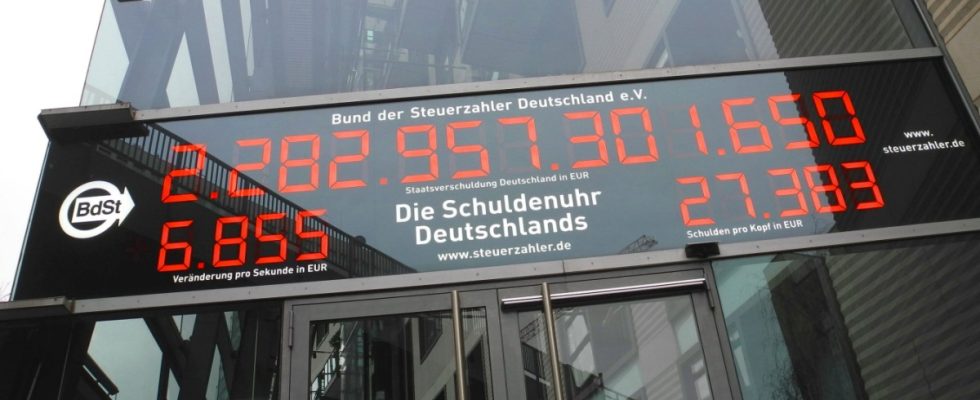Envy among neighbors is supposed to happen from time to time. But it is rather unusual for one lobby group to denounce another to the tax office. And yet: On Tuesday, the campaign platform Campact announced that letters had been sent to various tax offices because state associations of the Taxpayers’ Association were violating the legal requirements for non-profit status. Campact itself had already lost its non-profit status in 2019.
The action highlights a dispute that has been raging for years. It revolves around the question of which political activities are considered non-profit and should therefore receive tax support – and which should not. “In Germany there is a two-class civil society that is damaging our democracy,” says Campact board member Felix Kolb. Left-wing organizations such as Campact and their causes in particular are under pressure, while conservative associations such as the Taxpayers’ Association have little to fear. “Campact is not about taking anything away from the taxpayers’ association,” continued Kolb. The aim of the advertisements is to draw attention to “the imbalance in the interpretation of non-profit law”.
The Taxpayers’ Association is best known for its high-profile debt clock in Berlin’s government district and its annual “Black Book” on tax waste. In addition, the association is also committed to maintaining the debt brake or against the reform of the electoral law, and it also supports tax lawsuits, for example against the new property tax regulations or the solidarity surcharge.
When it comes to the question of non-profit status, it’s all about one thing: money. Because what is non-profit is defined more precisely by tax law in Germany Section 52 of the Tax Code. Associations that are recognized as non-profit organizations by the tax office on this basis enjoy many advantages: For example, they benefit from relief from corporation tax and sales tax, but above all they are allowed to issue donation receipts that donors can claim in their tax returns. Without non-profit status, this option is no longer possible – and donations may then not materialize.
If a dispute arises between authorities and associations, the Federal Finance Court (BFH) must make the final decision. In 2019, he made a landmark judgment in the case of the anti-globalization network Attac (Ref. VR 60/17): The sponsoring association no longer carried out political education, but rather crossed the border into “general political activity”. The activists were concerned with “influencing the formation of political will and public opinion.” But there are no tax advantages for this. As a result of this ruling, Campact also lost its non-profit status.
Since the BFH ruling, many other politically active associations have also feared for their status. Only a catalog of 26 association purposes is legally covered, including refugee aid, nature conservation or sport, but also animal and plant breeding or the maintenance and care of cemeteries. The clubs are also allowed to get involved politically – but beyond that it becomes uncertain. Can the sports club demonstrate against right-wing extremism? Are allotment gardeners allowed to take part in the climate strike?
Actually, the matter should have been settled long ago
A report shows that the Taxpayers’ Association regularly comments publicly on political decisions and should therefore have lost its non-profit status long ago, says Campact. Further research has now shown that six regional associations also intervened in daily political discussions. Therefore, information was sent to the respective tax offices in Hesse, Lower Saxony, Rhineland-Palatinate, Saxony-Anhalt, Schleswig-Holstein and Thuringia.
The Taxpayers’ Association says it is also committed to legally secure and simple regulations for non-profit organizations and is also involved in a corresponding alliance with more than 200 other organizations. “The campaign by an association that has been stripped of its non-profit status has no factual basis.”
Actually, the whole thing should have been resolved long ago. After the ruling in the Attac case, the then Finance Minister Olaf Scholz (SPD) wanted to reorganize the law, but the Union failed. And the traffic light coalition had actually planned to reform non-profit law, This is what is stated in the coalition agreement. In response to an SZ query, the Federal Ministry of Finance said: The government is currently developing a legislative package for this, but it cannot yet comment on “details and a specific timetable”.

